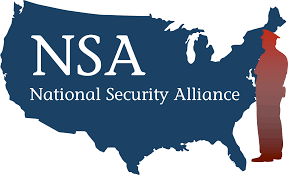
Learn how Georgia’s 2025 tort reform shields your security firm, reducing liability exposure and cutting your insurance costs.
How Georgia’s New Tort Law Could Lower Security Company Insurance
Randi Sherman
4 minute read
We’ve recently received some very optimistic news out of Georgia that could eventually have a significant impact on insurance options and affordability nationwide.
In April of 2025, Georgia passed a major tort reform law that benefits security firms by making it more difficult to prove negligence in security lawsuits.
Under the new law, property owners and security contractors can only be held liable if they had prior knowledge of substantially similar criminal activity within 500 yards of the property, making it much harder for plaintiffs to prove that the incident could have been foreseeably prevented.
Juries are also now required to apportion fault to all involved parties, including the actual criminal. If the property owner is assigned more blame than the perpetrator, the verdict can quickly be overturned.
What’s important here is that security firms now receive the same liability protections as property owners, hence reducing their exposure to excessive litigious judgments. For security company owners, this likely means fewer frivolous claims, a fairer legal environment, and a more favorable area for obtaining liability insurance.
As this is the first major reform to the act since 2005, it is big news. The offshoot of these changes will impact several aspects of civil litigation, including cases claiming security negligence, third-party litigation funding, damages, and evidentiary matters. The expectation is that it will strongly favor defendants and limit recoveries in civil cases involving personal injury and wrongful death.
The scales have officially tipped. But how does this affect security firms?
Security Insurance Affordability: An Ongoing Concern
Security firms carry liability insurance to protect them against various things, including coverage for legal costs associated with lawsuits. Regardless of who is to blame in an incident, if a security guard firm is involved in an injury claim or wrongful death, they will likely be named as a defendant.
Even people who experience no physical injury might sue the company for trauma and emotional injury, such as might be the case if there was a shooting incident on a property and several members of the public or employees were present. With the advent of Georgia’s new rule, these individuals would only be able to sue the security company if they could prove that the firm knew this type of event was likely to happen or had occurred previously within 500 feet of the incident.
Here are some of the most relevant points of the Georgia tort reform as they apply to this topic:
· Negligent security claims. Plaintiffs bear the burden of proof that the firm had prior knowledge or should have known about the risk.
“SB 68 formally defines negligent security claims, requiring plaintiffs to prove #foreseeability through specific warnings, prior similar crimes, or the perpetrator’s criminal history.” Eddie Sorrells (source).
· Apportioned fault. Juries must assign fault to all stakeholders, including the perpetrator. If the weight of fault falls on other parties, the firm’s legal liability is significantly reduced or negated entirely.
· Limit to medical damages and “phantom damages.” The reform limits awarded damages to the reasonable value of necessary care, considering the costs already paid and what is realistically expected. It also allows defendants to present evidence of the actual amounts of money required to satisfy these expenses. For example, if a defendant was billed for services but could not pay, resulting in a write-off, the amount billed is moot.
o Defendants are now allowed to obtain letters of protection and agreements between providers and plaintiffs regarding treatments rendered in exchange for a portion of the damages awarded.
· Codifying negligent security. This is a multi-layered amendment stating that landowners are not obligated to police public order on their properties. This means that riotous or violent acts committed by the public on a property are not the fault of the landowner, and liability is restricted in cases of trespassing.
Most poignantly, all legal protections are extended to the security firm, granting increased protections equal to those of the property owner. While this does not excuse security firms in negligence cases, it puts them on a level playing field with the property owner and does not assume that the guard or the firm acted improperly.
Separation of Trial Phases
Another aspect of the reform that could significantly reduce damages is the ability for any party in a lawsuit to request a bifurcation of a trial. This means that the liability phase is separated from the damages phase, ensuring the jury assigns fault at specific percentages before hearing about the injuries or financial concerns related to them.
The thinking behind this is that if both aspects of the trial are heard together, it could sway the jury’s decision based on sympathy. If the plaintiff is found to be 50% or more at fault, the case ends immediately, and no damages are awarded. If the plaintiff’s fault apportionment is less than 50%, the case proceeds to the damages phase. All evidence concerning damages is omitted from the initial phase, thereby removing a tactical advantage often leveraged by attorneys arguing on behalf of the plaintiff.
How Will Georgia’s Decision Impact Security Liability Insurance?
Security firms and guards in Georgia have many reasons to celebrate. Not only can they worry less about bias in the courtroom, but it should also have a direct impact on insurance premiums.
Security insurance premiums are determined based on risk. Underwriters look at the types of work they do, the locations, properties, and people they protect, and assign risk based on statistically relevant factors. Foreseeably, tort reform will significantly reduce damages, thereby reducing liability factors and associated risks. Ergo, premiums should decrease.
What Does Georgia Tort Reform Mean for the Rest of the Country?
Time will tell how Georgia’s tort reform will impact the security industry at large, but we view this as a very positive step and an impactful move toward curbing claim values.
In light of this bill passing in Georgia, we continue to push this news to all key carriers and advocate for an improved posture with underwriting security risks in Georgia.
On a broader scale, only a handful of states have successfully passed any notable tort reform that would benefit security firms, so the success in Georgia is important. Precedents like this are often precursors to sweeping changes. In light of the unbridled litigious zeal wielded by many complainants—not all of which are warranted—we view this as a step towards equity that will mitigate the potential for multi-million-dollar lawsuits, thereby reducing risk and, hopefully, liability premiums.
Though Georgia is just one state, it’s a start.
Keep in mind that risk mitigation is not just about legal loopholes—it starts with well-trained guards. To learn more about how we can support you in transforming your guard force with elite guard training, get in touch today.






